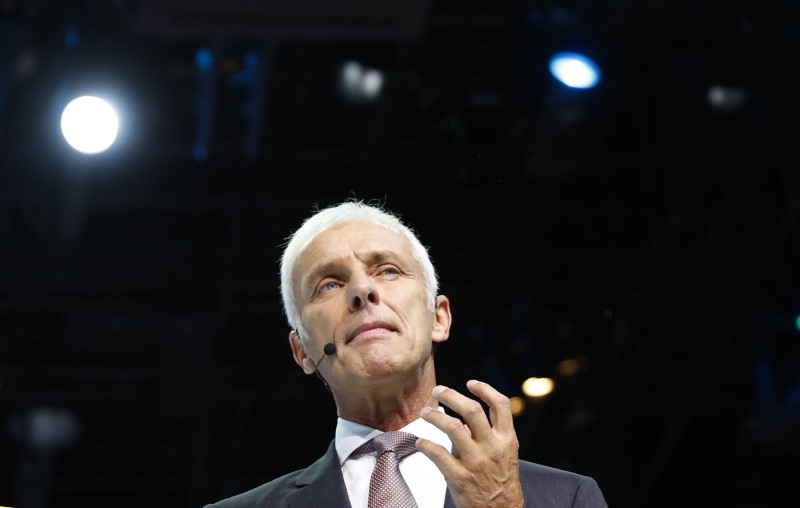BERLIN (Reuters) - Volkswagen (DE:VOWG_p) is not against upgrading the exhaust systems of older diesel cars to make them cleaner, but could not afford to pay for such a huge undertaking itself and is concerned it might impair vehicle performance, its CEO said.
After Germany's top administrative court on Tuesday allowed local authorities to bar heavily polluting diesel cars in major cities, the federal government is scrambling to find ways to avert driving bans that would hurt consumers and automakers.
Environmental and motorist lobbies are raising the pressure on Volkswagen (VW) and its peers to modify the exhaust systems of older diesels which they say are a major source of toxic nitrogen oxide emissions that can cause respiratory disease.
"I don't want to say now that I'm ruling it out," VW Chief Executive Matthias Mueller said on Friday at an auto industry event. But he voiced misgivings.
Hardware changes would cost between 1,500 ($1,845.30) and 7,000 euros per car, and the development as well as testing of new exhaust cleaning systems would take 2-3 years, Mueller said.
Also, retrofitted vehicles might consume more fuel and emit more carbon dioxide, which would affect the level of car tax, he added.
Of the 15 million diesel cars on Germany's roads, only 2.7 million are equipped with the latest Euro-6 emissions technology. Research firm Evercore ISI has estimated that upgrading the exhaust cleaning of the 6 million Euro-5 vehicles could cost up to 14.5 billion euros ($17.9 billion).
"I would compare hardware changes on a Euro-5 vehicle to an open-heart surgery," Mueller said.
There is no way that VW could shoulder major costs for such modifications as it is stretched by the costs and fines related to its "Dieselgate" emissions scandal, he said.
"We had to pay about 25 billion in America, we cannot again pay 17 billion for hardware refits," Mueller said. "That is simple not possible."
